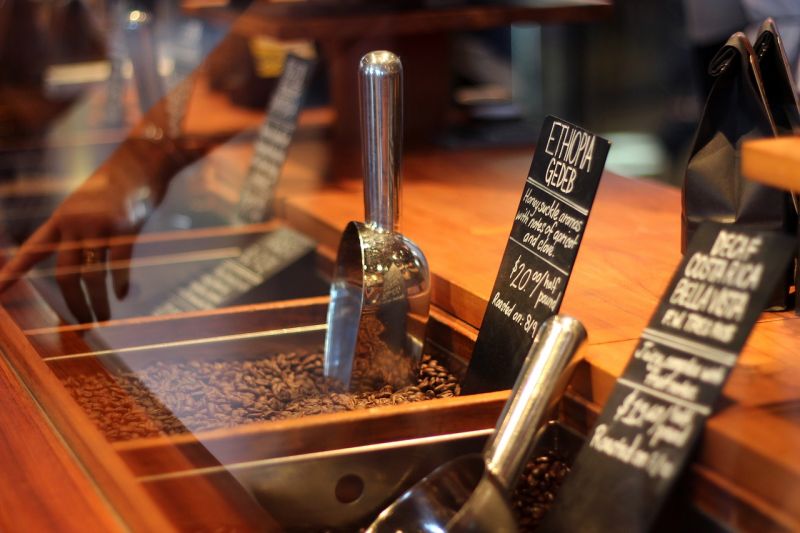
In India, food has always been a focal point of social gatherings, wedding parties, community functions, or any sort of celebration. If you’re the kind of person who not only likes to cook but also finds joy in serving and feeding people, you might just consider opening a catering business.
Here are a few pointers on how to start a catering business:
Figuring Out your Menu 
Before you jump on the bandwagon and think about running a full-fledged business, you should first chalk out the initial structure. Firstly, decide on what sort of food you want to offer, and find your niche among the variety of options already existing in the market. If you plan to cater to birthday parties, cakes and desserts should be your specialty. If corporate lunches and dinners sound more interesting to you, your menu should reflect that.
By deciding on the menu at the very onset of any undertaking, you can plan your business more effectively—kitchen requirements, initial costs, target market which would emphasize what sort of cuisine to focus on, how much of vegetarian or non-vegetarian dishes to include, etc.
Also, once you have decided on the menu, make a sample platter and test your dishes on friends and acquaintances. This should give you a fair idea on cooking techniques, presentation, and time required before you launch your catering business.
Also Read: Things to Know for Opening a Restaurant
Setting Up Your Kitchen 
Making an inventory is crucial at this stage, a list of all items existing and those required such as cooking equipment, dishwashers, freezers, etc. The challenge here is to think from a commercial standpoint as compared to the previous home-kitchen experience. Now, the scale is notched up considerably and hence, appliances and paraphernalia need to be fitting enough.
One of the major chunks of the set-up cost of a catering business is the space required for the kitchen. For any commercial enterprise, a separate space is required for operations. The initial investment in this regard can be quite reasonable as compared to traditional restaurants, in which case a much larger space is required.
One way to cut down on expenses is to rent all the commercial kitchen appliances like multiple large ovens, mixers, and fryers and also serving equipment such as crockery, tablecloth, etc. Another cost to be taken into consideration is the logistics involved in this business. Since catering is primarily a food delivery enterprise, a transportation factor comes into the picture.
Also Read: Ways to Setup a Profitable Kitchenware and Home Essentials Shop
Making a Business Plan 
Once you have your basics clear, it is important to make a formal plan for your home-based business. This helps in getting the required bank loans and also for presenting to prospective investors. A catering business plan should be an end to end structure of how you want your catering business to look like. A plan essentially includes the following:
- Executive summary: Give brief information about the company and also state your mission and goals or objectives along with your idea of the key to success.
- Business summary: State the company ownership and operational details along with the start-up costs incurred.
- Services: Mention extensively what products and services you wish to provide.
- Market analysis: Present your study of the existing catering market you wish to enter and state your comparative advantage. Give an idea of which market segment you have targeted and also a business analysis of your competition.
- Implementation summary: Mention your marketing and sales strategies and implementation structure.
- Management summary: Give your management and employee structure.
- Financial summary: State your pricing structure and expected profit margins.
Registering your Business
One of the main steps in starting any business is to commercially register yourself. You can register as either of the following:
- Private Limited Company (Pvt. Ltd.): This is most recommended as this does not have any turnover cap.
- Limited Liability Partnership (LLP): This can be registered if the business is fairly small. However, if annual sales increase to INR 40 lakhs, type of entity needs to be changed.
- One Person Company: This needs to be converted to Pvt. Ltd. once annual turnover crosses INR 2 crores.
Also, you should get all the required licenses at the very beginning to ensure smooth operations. In India, catering business licenses primarily include a food business operator license from FSSAI (Food Safety & Standard Authority of India). Along with this, health regulations and fire safety permits need to be taken care of as per state laws.
Connecting with Suppliers and Vendors
Since you will be preparing food on a mass scale, opting for wholesale food supplies is more economical. Try and tie-up with local vendors or make an account with grocery delivery apps which provide discounts for bulk purchase.
Also, in India especially, caterers are expected to bring all supplementary items along with food such as cutlery, plates, table napkins, etc. for which you might need to make a contract with suitable vendors.
Hiring Staff 
Source Image: thecheftree
You need to give significant attention while hiring your staff both for kitchen and service. For those not wanting to start from scratch, you can hire staff through agencies. You also need to decide on uniforms for those who will be serving your clients and invest time in training your employees for client service.
Also Read: Things to Know for Starting a Home Based Cooking Business
Pricing your Dishes
This is probably the trickiest part of the business. Your market analysis should be the backbone of your pricing strategy. You need to be competitive so your food pricing should be close to the market rates but also think of profit margins at the same time. Think of such items that are not offered by the existing caterers which you can price steeply due to exclusivity.
You need to take into consideration your geographical location and the demographic mix of your market, you wouldn’t want to price some items so high that your middle-class clientele cannot afford. Again, your prices cannot be too low that you don’t earn any income from the business.
Also, the time taken for food preparation and raw material costs are important factors in pricing decisions. As compared to restaurants, profit margins are higher for caterers in India due to lower food and labor costs. An average catering company earns up to 10 percent to 12 percent profit on standard menus.
Tax Registrations
Catering businesses are covered under service tax and sales tax based on annual turnovers. As GST has been applicable since July 2017, GST registrations need to be done based on appropriate turnovers. GST rate on catering services is 18 percent right now.
Promoting your Business

Developing a marketing plan is a vital step in starting your business. You must set out a separate budget for promotional expenses. Apart from the usual print advertisement and distributing flyers, you need to think of offbeat ways to expand your reach. In today’s digital age, social media is a very powerful marketing channel. The following points are a few ideas to market your catering brand on social media.
- Create your company accounts on sites like Facebook, Instagram, Twitter, etc.
- Connect with your followers on a daily basis and post updates on your recent catering ventures along with photos and respond to comments.
- Put up photos of new dishes on Instagram and check the public reaction.
- Give out news of discounts and promotional coupons for people who visit your website after being redirected from a social media site.
Catering business, unlike regular restaurant business, works more on word of mouth. Since, usually, a physical space is absent, you need to be more proactive and make sure your clients are expanding your business by referring you to their network. Make your presence felt by holding small booths or counters at local fairs or concerts, give out your card to people there.
Also Read: 15 Best Manufacturing Business ideas
Invest in your logo design and make sure your brand name is attractive and catchy. Most importantly, stay loyal to your customers and make sure you always deliver to your regular customers. Reliability is a key characteristic people look out for while hiring caterers. Also, reward your loyal customers by giving them discounts, this will ensure future referrals.
Video :
Conclusion- Scope of Catering Business in India
In India, the catering service industry has seen a steady growth in the last few years. As the disposable income increases for families, the tendency to spend more on events, functions, and social gatherings becomes higher. In a place like India, there is considerable scope for a catering business to flourish. There is no end to wedding functions, corporate off-site events, community lunches, birthday parties, or cocktail nights.
The key to success definitely lies in the quality of food provided but also aspects such as punctuality, presentation, and creative marketing play a role. Visual appeal is a big player on consumer minds and since catering industry is marketed mainly through word of mouth making the right impression is essential. Catering business being less capital intensive and requiring comparatively low investments is definitely a prospective avenue to try your luck in business. Make sure you have the right amount of focus as you work hard and smart!
